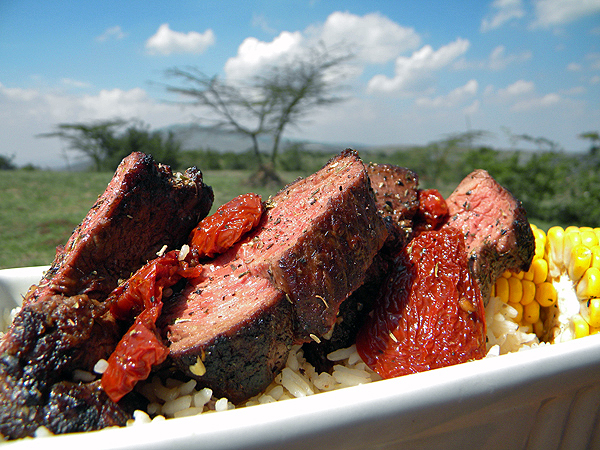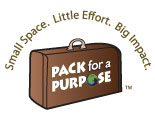Travelling with food allergies or intolerances in Africa
Travelling with food allergies or intolerances is never an easy task. With a little know-how and preparation travelling has just become a whole lot easier.
Keeping well and healthy while travelling
From our experience of catering for everything from Coeliac (Celiac) to Diabetes to Fructose Intolerance on our guided self drive safaris and student group tours there is no excuse to keeping everyone in the group healthy. Albeit there are several hurdles to jump along the way.
Understanding some of the local factors that may be barriers to travelling with food allergies or intolerances
There are several factors we need to consider and being aware of these factors helps us to keep you well and healthy when travelling with food allergies or intolerances.
- labelling laws are not always as strict as they are in developed countries
- particularly in African countries conditions like Coeliac (Celiac) and Fructose Intolerance simply do not exist – hence there is a lack of awareness and understanding.
- cooks and cooks assistants in many parts of Africa come from poorly educated backgrounds and most do not have any formal training. They may not comprehend just how serious a condition is and how important it is to prevent cross contamination.
- On a positive note there are many dishes from various African countries that are naturally gluten, dairy, nut and egg free, are simple to prepare, use only fresh ingredients and are exceptionally tasty. And no, I don’t mean beans and rice!

Gluten free, egg free, dairy free, nut free … beef fillet roasted with sundried tomato and fresh herbs, served with fresh corn on the cob and basmati rice.
How do we keep our clients well and healthy while travelling with food allergies and intolerances?
On our camping safaris and some of our accommodated safaris it is very easy for our crew to keep those travelling with food allergies or intolerances well and healthy. Our crew are trained in how to shop and cook for those travelling with food allergies or intolerances.
1. If in doubt about what is stated on a label we simply won’t use it
2. Wherever possible we avoid local restaurants even if there are clearly menu items that meet the dietary requirements of our clients due to cross contamination issues. It is highly likely the person who has spent all morning making chipati (local wheat flat bread) and Kachumbari (delicious salad made with tomato, onion, chilli and fresh coriander) is now preparing the Ugali (local corn polenta) with only quickly rinsing the cutting boards and utensils and roughly brushing the wheat flour off their apron!
There are some restaurants particularly in tourist areas that are now catering for food allergies and intolerances, we keep a list of these places and when staying in hotels we point our clients in the right direction!
3. When shopping and buying food products we never ask if something has gluten. As chances are the person we are asking has never heard of gluten. Asking things like “does this item contain wheat or other types of flour” is more likely to get a more accurate answer. If in doubt we don’t risk it.
4. Keep it fresh and unprocessed. What we have found works best is to cook meals that are made with as many fresh ingredients as possible and limit packaged/tinned/processed foods as these are often the items that have some sort of allergen. There really are very few limits to what you can produce in a camp kitchen.
5. Keep a stock of allergen and intolerance free products. Over the years we have sniffed out the best places to restock on gluten free, sugar free, dairy free, egg free, nut free products etc from breakfast cereals to pancake mix to chocolate desserts to cookies in East and Southern Africa. The range may be limited but there is often enough to at least provide a regular treat. Let’s face it there is nothing worse than feeding the group mouthwatering pancakes for breakfast – and those who can’t have get another rice cracker! I just finished leading and cooking for a group of students from America and one was Coeliac (Celiac) with a dairy allergy, he enjoyed the gluten/dairy free options including lasagne, pancakes and s’mores around the campfire!
6. To prevent cross contamination we always do the meal prep first for those with intolerances and allergies and we separate utensils and chopping boards.
7. There are certain items that are easily contaminated like jars of jam, mayonnaise, butter, jellies and other spreads. We ensure there are separate items of these for the exclusive use of those with allergies and intolerances.
8. We love our food and enjoy taking some time before trips or during our quiet season to get into the kitchen and come up with tasty recipes that are allergen and intolerance free. We like to arm ourselves with an arsenal of options that can feed the entire group. Sometimes our clients travelling with food allergies and intolerances feel like they are being a burden asking us to prepare different meals, which could not be further from the truth. But it does make them feel better if some meals can be eaten and enjoyed by everyone!
Travelling with food allergies and intolerances when you have no control of the kitchen.
This can be a little tricky, however the good news is more and more lodges and hotels across the African continent are offering menus that cater for food allergies and intolerances.
However if you are booking your safari through a travel agent never rely on what you are being told. Not that I want to say anything bad about travel agents, this is simply from my own personal experience where the travel agent has not passed on the relevant dietary requirements or personally checked that the hotel/lodge/safari camp can cater.
Even if you book through a travel agent contact the accommodation personally and explain in detail what you can and cannot eat. Please remember that certain conditions that are now so prevalent in the Western world DO NOT EXIST on the African continent. The more comprehensive the information the more prepared the lodge/hotel/safari camp will be.
Also, remember that accommodation in game parks (where you will be based for your safari) are often in very remote areas, most of them rely on supplies being flown in once a week, gluten free products can be difficult to source so the more time a lodge/safari camp has to prepare the better the variety and quality of food you will likely receive.
When I have clients booked on an accommodated trip through East Africa I start working with the lodge/safari camp management and kitchen staff well in advance to ensure our clients are well catered for. Over time this task is getting easier as more and more people travel with food allergies and intolerances and hotels/lodges and safari camps are catering.
Above all don’t let your food allergies or intolerances stop you from travelling!
On a final note living with food allergies or intolerances does not mean you have to stop travelling. Understanding where you are travelling is a great start to ensuring you are prepared. It only takes a bit of planning and research to make all the difference to your travelling experience and staying well and healthy.





